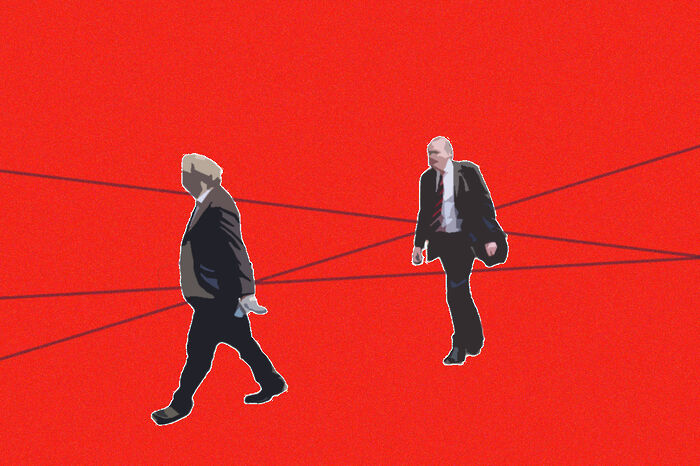Exclusive: Greenwich House may contain sensitive information on University ties to Shell
An employee was concerned that students would discover and disseminate “confidential documents” housed in the occupied building

A University employee expressed his concern last week that “sensitive documents” regarding companies “such as Shell” might be disseminated by student occupiers at Greenwich House.
A court document released to Varsity by Cambridge Zero Carbon revealed the University security team’s record of events.
At 9am on 20th May, Philip Cull, the assistant director of physical science in the research operations office, called University security to say he was worried that occupiers would find and disseminate the “confidential documents” on Facebook and Twitter.
The research operations office is housed in Greenwich House, where Cull alleged that documents were stored “in both locked and unlocked filing cabinets”.
Occupiers received the record of events describing Cull’s concerns alongside the court eviction order on Thursday 24th May – six days into their occupation, and the day before they were evicted from the property.
Occupiers said they did not seek to find the documents in question. A spokesperson for Zero Carbon Society said: “Against the legal power of the University the risk would have been too great, although they clearly have a huge amount to hide.”
Got a story for us?
Seen something you think Varsity should be talking about? Contact our News team at news@varsity.co.uk.
A spokesperson for the University has declined to comment on whether any such documents exist in the building.
The spokesperson denied that the existence of any such documents motivated the decision to evict the occupiers. They said: “The eviction is solely due to the disruption to the business of the University and the unauthorised occupation of one of its buildings.”
The witness statement from Friday’s hearing included a successful application to abridge the time of enforcement for the eviction order. One of the reasons cited was “the risk of unlawful dissemination or collection of confidential and/or personal information”, although it is unclear whether this is in regard to Philip Cull’s concerns.
The unknown nature of these documents comes amid close scrutiny of the University’s research and financial ties to Shell.
An open letter currently signed by over 90 Cambridge academics has criticised the divestment working group report for containing “no assessment of the extent” of the University’s collaborations with fossil fuel companies, or of funding received directly or indirectly from such companies.
The University of Cambridge has a number of established research connections with Royal Dutch Shell, and hosts annual Shell lectures. The 2016 lecture was entitled ‘Powering Progress Together: Providing More and Cleaner Energy’, while the 2017 lecture saw controversy after a Shell director remarked that he was “fundamentally proud” of the company’s operations in Nigeria.
In recent years, subsidiaries of Royal Dutch Shell – Shell Global Solutions International, Shell International Exploration and Production, and Shell Research Inc – have funded a number of grants in departments across the University. According to annual financial statements published in the Cambridge University Reporter, the research grants totalled over £2.6 million in project funding between July 2012 and July 2017, with projects including the development of carbon capture technology.
In terms of financial investment, the exact nature of the University’s ties to Shell remain unknown. Cambridge investments in Shell came under heightened scrutiny last November when The Guardian’s Paradise Papers revealed Cambridge and its colleges’ holdings in offshore fund Coller International, which channels investments principally to Shell.
The University’s Chief Financial Officer Anthony Odgers reiterated, in a statement addressing the backlash following the Paradise Papers revelations, that the University’s indirect investments in fossil fuels industries are “negligible” – a description it has stood by since 2016 despite mounting dispute.
At the open meeting last term, Vice-chancellor Stephen Toope was questioned about University investments in Shell. He replied, “how do we know that we’re investing in Shell?”, explaining that “some very successful investment managers... simply will not provide full transparency on every bundle”.
A spokesperson for Zero Carbon said: “We are left with a simple question: If Toope ‘doesn’t know’ if the University invests in Shell, then what are these documents and what exactly does the University want to hide?”
 News / Clare Hall spent over £500k opposing busway 24 December 2025
News / Clare Hall spent over £500k opposing busway 24 December 2025 Comment / The ‘class’ of Cambridge24 December 2025
Comment / The ‘class’ of Cambridge24 December 2025 News / Caius mourns its tree-mendous loss23 December 2025
News / Caius mourns its tree-mendous loss23 December 2025 Comment / Yes, I’m brown – but I have more important things to say22 December 2025
Comment / Yes, I’m brown – but I have more important things to say22 December 2025 News / Girton JCR publishes open letter expressing solidarity with Palestine25 December 2025
News / Girton JCR publishes open letter expressing solidarity with Palestine25 December 2025











